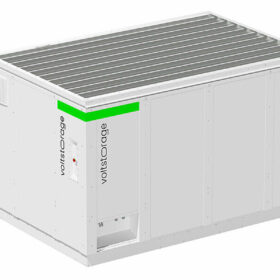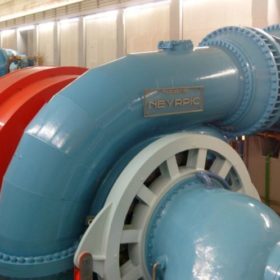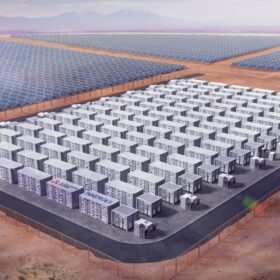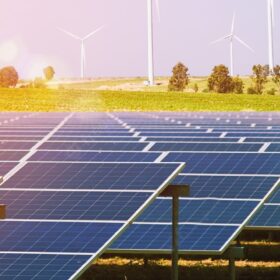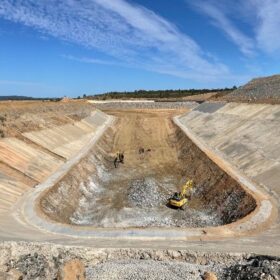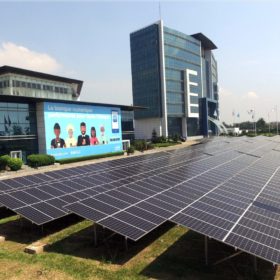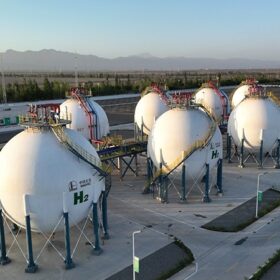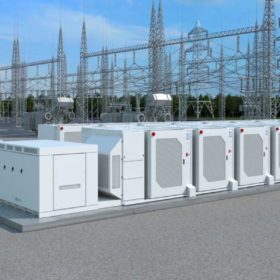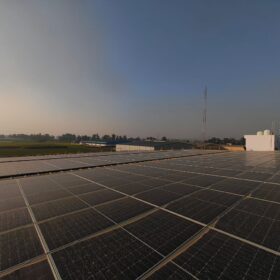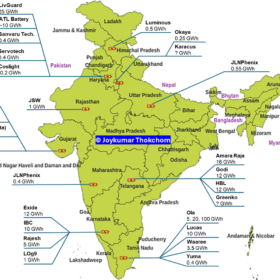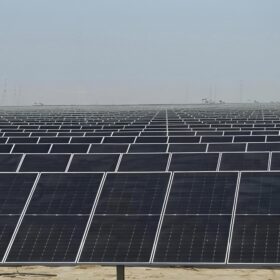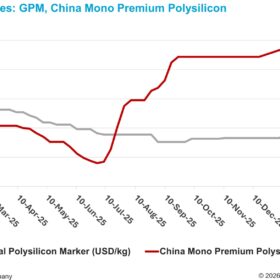VoltStorage unveils vanadium redox flow battery for commercial use
Germany’s VoltStorage says its containerized 50 kWh vanadium redox flow battery solution can be scaled up to 500 kWh.
NTPC launches 2 GW pumped storage tender
Each developer can bid for pumped storage capacities from 200 MW to 2 GW. Projects can be developed at multiple locations, with a minimum project size of 200 MW. The minimum storage cycle is six hours. Bidding closes on August 16.
Integrating higher share of renewable energy in India’s power system
To increase the share of renewable energy, India needs to introduce demand-side measures like time-of-use tariffs, develop a well-connected national grid, deploy various energy storage options for grid balancing services, and convert its fossil-fuel-powered fleet to operate flexibly.
Chile releases bidding terms for 5,400 GWh renewables, storage auction
The Chilean authorities want to contract 5,400 GWh of power from renewable energy, while also including battery storage. The selected developers will secure 20-year power purchase agreements (PPAs).
Serentica Renewables signs 1.5 GWh storage contract with Greenko
Serentica Renewables has contracted 1.5 GWh of dedicated six-hour energy storage capacity to provide round-the-clock green energy to its industrial customers.
Australian developer secures funding to speed up 2 GWh pumped hydro project
Australian renewables developer Genex Power has signed agreements with Japanese utility J-Power for a multimillion-dollar funding package that will support the delivery of its 2 GWh pumped hydro project in Queensland Australia, and the development of the 2 GW Bulli Creek solar and battery project.
Africa50 signs MoU with International Solar Alliance to support PV projects across Africa
Africa50 and International Solar Alliance (ISA) will leverage each other’s networks to mobilize funding and raise awareness of African solar projects in European and Indian markets.
The Hydrogen Stream: China starts world’s biggest solar-to-hydrogen site
China’s Sinopec has switched on the world’s largest solar-to-hydrogen project in Xinjiang, while India has unveiled a new plan to incentivize green hydrogen and electrolyzer production.
Green Gravity links with miner to fast track gravity energy storage tech
Australian renewable energy startup Green Gravity has teamed with underground mining contractor RUC to accelerate the commercialisation of its gravitational energy storage technology which rests on moving weighted objects through disused mine shafts.
SECI tenders 500 MW of renewables with storage
Solar Energy Corp. of India Ltd (SECI) will start accepting bids to select developers for 500 MW of firm and dispatchable power from renewable energy projects with energy storage systems.
